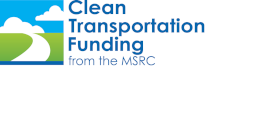The next six months will prove to be a busy time for the development of California’s Sustainable Freight Action Plan. In July, Governor Brown’s Executive Order B-32-15 directed state agencies to develop an integrated action plan by July 2016 that establishes clear targets to improve freight efficiency, transition to zero emission technologies, and increase the competitiveness of California’s freight system. The process to develop the plan is in midstream, and agencies are seeking stakeholder input to formulate actions and projects that will carry out the goals outlined in the Governor’s Executive Order.
The Sustainable Freight Action Plan will contain a vision for the state’s freight transportation system in 2030 and 2050. The plan will contain emerging freight system trends and outlooks, as well as a discussion of the magnitude of change that will be needed to help meet the state’s 2030 and 2050 goals. The plan also will identify the potential range of benefits to California by transitioning to a sustainable freight transportation system by 2050.
Another element of the plan will be the inclusion of freight pilot projects to be located within the state’s major trade corridors. The pilot projects must be transformative and will incorporate advanced technologies and alternative fuels, freight and fuel infrastructure, and local economic development components. The plan will highlight the importance of the need of the public and private sectors to work together to implement these projects and to achieve the steps that will be outlined in the plan.
California's freight system is a multimodal system designed to move freight across the state, nation and globe via various modes of transportation, from aircraft to trains to trucks and vans (see photo). This system impacts communities on many levels, including the health and well-being of local residents. Despite the increased use of cleaner fuels and equipment and the implementation of cleaner port initiatives, the freight transport sector is the largest contributor of NOx and diesel Particulate Matter (PM) in the state that is responsible for significant health impacts, and also is a contributor to climate change from CO2 and black carbon emissions.
Prior to the current undertaking of the Sustainable Freight Action Plan, the California Air Resources Board (ARB) had already begun planning for sustainable freight initiatives with its “Sustainable Freight: Pathways to Zero and Near-Zero Emissions” document published earlier this year. It sets out ARB's vision of a clean freight system, together with the immediate and near-term steps that ARB will take to support use of zero and near-zero emission technology.
This current Sustainable Freight Action Plan development process is a result of the Governor’s Executive Order and is a multi-agency, coordinated effort by ARB, the California Energy Commission, the Governor’s Office of Business and Economic Development, and Caltrans to develop a partnership among these agencies to move California's freight system forward. The ARB pathways document, as well as several other agency reports and plans, will form the foundation for the action plan.
The state agencies and Governor’s office acknowledge that a transition to a zero or near-zero emission freight transport system, coupled with the use of renewable fuels, will be required to meet federal air quality standards. A key piece to this transition will be the adoption of clean fuel and vehicle technologies. The need for comprehensive planning for their rollout and implementation will be critical to their success.
ARB currently is accepting pilot project ideas for the state’s primary trade corridors. The projects must be designed to ensure progress towards a sustainable freight transportation system. Additionally, projects must those that would benefit from integrated actions by state agencies on advanced technologies, alternative fuels, freight and fuel infrastructure, and local economic development. Projects ideas are due by November 30. A draft list of these pilot projects will be discussed at public workshops to be held in mid-January.
A draft of the Sustainable Freight Action Plan will be released in the spring, with final adoption slated for July 2016. To submit comments on the plan, please email CSFS@dot.ca.gov.
